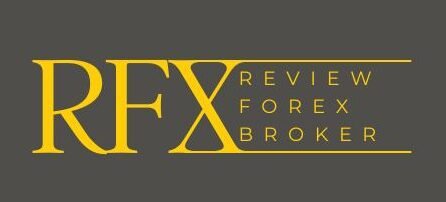The forex trading landscape is vast and enticing, drawing in traders with promises of high returns and financial freedom. However, not all brokers operate ethically. Some employ dubious marketing tactics that can mislead traders and lead to significant financial losses. This blog will explore common marketing tactics used by forex brokers, how to spot red flags, and tips for avoiding scam brokers.
Understanding Forex Brokers’ Marketing Tactics
Forex brokers often utilize various marketing strategies to attract clients. While many of these tactics are legitimate, others can be misleading. Here are some common marketing tactics to watch out for:
- Too Good to Be True Promotions:
- Brokers may offer attractive bonuses or promotions that seem too good to be true. While bonuses can be appealing, be wary of terms and conditions that make it difficult to withdraw your funds.
- High Leverage Offers:
- Some brokers advertise high leverage ratios (up to 1:1000) to entice traders. While leverage can amplify profits, it also increases risk significantly. Always consider whether the potential rewards outweigh the risks.
- Guaranteed Returns:
- Claims of guaranteed profits or risk-free trading are major red flags. Trading inherently involves risk, and no broker can assure consistent returns.
- Aggressive Advertising:
- Brokers that bombard potential clients with aggressive advertising—especially on social media—may not be operating with the best intentions. Be cautious of brokers that prioritize marketing over transparency.
- Influencer Promotions:
- Some brokers partner with social media influencers to promote their services. While influencer endorsements can be informative, it’s essential to research the broker independently and not rely solely on influencers for validation.
Spotting Red Flags
Identifying red flags can save traders from falling victim to scam brokers. Here are some indicators to watch out for:
- Lack of Regulation:
- Always check if the broker is regulated by a reputable financial authority (e.g., FCA, ASIC, CySEC). Unregulated brokers pose a higher risk as they may not adhere to strict financial standards.
- Poor Customer Reviews:
- Research online reviews and ratings from existing or former clients. Look for consistent complaints about withdrawal issues, customer support, or sudden account closures.
- Inaccessible Customer Support:
- A legitimate broker should offer accessible and responsive customer support. If you find it challenging to reach them or receive vague responses, consider it a red flag.
- Opaque Fee Structure:
- Brokers should clearly disclose their fees, including spreads, commissions, and any hidden charges. If a broker is not transparent about their fee structure, it’s a cause for concern.
- Pressure Tactics:
- Beware of brokers that pressure you to deposit money quickly or encourage high-risk trading without providing adequate information. Legitimate brokers prioritize their clients’ interests over their own.
Tips for Avoiding Scam Brokers
To protect yourself from scam brokers, consider the following tips:
- Conduct Thorough Research:
- Before choosing a broker, take the time to research their background, regulatory status, and customer reviews. A broker with a solid reputation is more likely to be trustworthy.
- Verify Regulatory Compliance:
- Ensure that the broker is regulated by a reputable authority. Check their license status and whether there have been any disciplinary actions against them.
- Read the Fine Print:
- Carefully review the terms and conditions, including withdrawal policies, bonuses, and trading conditions. Understanding these details will help you avoid surprises later on.
- Start with a Demo Account:
- Many reputable brokers offer demo accounts that allow you to test their platform without risking real money. Use this opportunity to assess their services before committing.
- Be Wary of High Leverage:
- While leverage can amplify gains, it also increases risk. Choose brokers that offer reasonable leverage ratios, and avoid those promising excessively high leverage.
- Trust Your Instincts:
- If something feels off about a broker—whether it’s their marketing tactics, customer service, or overall transparency—trust your instincts. It’s better to be safe than sorry.
Conclusion
Forex trading can be lucrative, but it’s crucial to choose the right broker to avoid scams and ensure a positive trading experience. By understanding common marketing tactics, spotting red flags, and following best practices, traders can protect themselves from fraudulent brokers.
Always prioritize due diligence and research before opening an account with any forex broker. With the right approach, you can navigate the forex market confidently and securely, making informed decisions that align with your trading goals.

